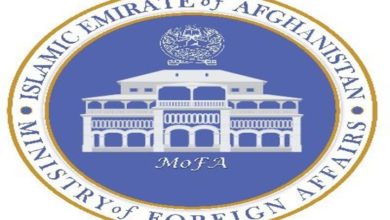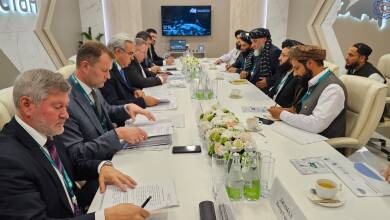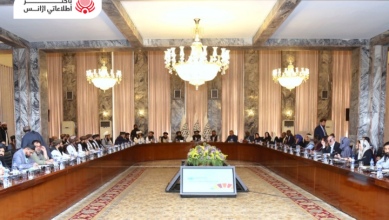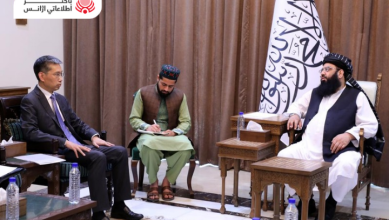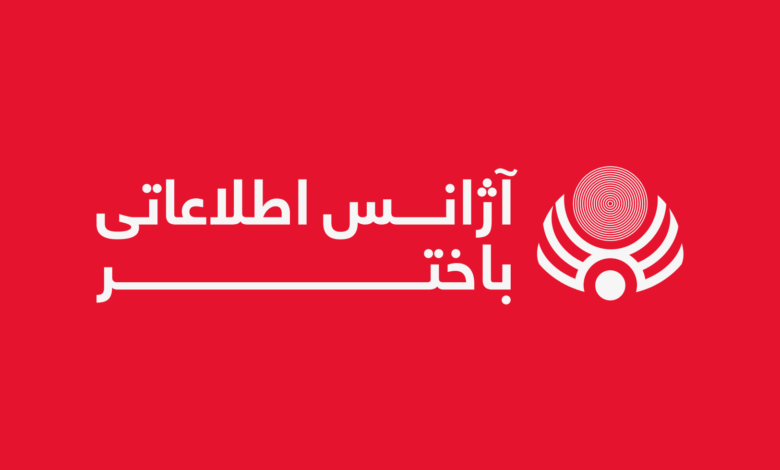
Friday, December 14, 2012
Kabul (BNA)
Brussels
Secretary General Rasmussen,
Excellences, Ladies and Gentlemen:
Let me begin by thanking the Secretary General for inviting me to this NATO foreign ministerial to share the Afghan government’s perspective with you all. It is a great pleasure to be back at the same table with many of Afghanistan’s most steadfast and reliable friends and allies.
Eleven years ago, Afghanistan emerged out of a dark era of war and destruction, and embarked on a journey towards peace, prosperity, democracy and justice. Over the past decade, we've achieved tremendous gains that all nations represented around this room have courageously and generously contributed to and can deservedly feel proud about.
We, in Afghanistan, feel genuine pride about the transformation we've achieved – all with the sacrifices of our people and your help. We're genuinely proud of our young democracy – today we have an elected president, an elected parliament, and elected provincial councils in each one of our 34 provinces.
We’re sending more than eight million of our children back to school — nearly 40 percent of them girls — and tens of thousands of our young men and women to universities across the country. The majority of our people today enjoy basic healthcare. We’ve rebuilt significant portions of our physical infrastructure, including thousands of kilometers of roads and bridges.
We hav're also made strides in rebuilding our state institutions, including the Afghan National Army and the Afghan National Police who enjoy the strong and growing support and trust of the population. Our increasingly capable and professional army and police have fought together with our allies against terrorism and extremism in our region that continues to pose a real danger to the people of Afghanistan, the region and the wider world.
Ladies and Gentlemen:
The Afghan people have suffered the most – in numbers and in terms of their quality of life – in our just struggle against the tyranny of terrorism and extremism – tens of thousands of our innocent men, women and children have lost their lives, mostly to terrorist bombs and bullets but some also as civilian casualties in the fight against terrorism. Afghan soldiers and police have borne the biggest losses of this war. So far this year alone, over 2100 Afghan soldiers, police and other security personnel have lost their lives and over 4600 have suffered serious wounds in our ongoing fight against terrorism and for the security of our country.
Coalition nations in Afghanistan have also borne enormous sacrifices in both blood and treasure in our common fight. Let me say this here once again: we honor your sacrifices; we will remember your friendship and remain grateful to you for standing with the Afghan nation at such a critical juncture in our history.
Together, we have also instituted a broad array of additional measures to prevent insider threats, which have resulted in a dramatic decrease in these mostly enemy-driven attacks.
Ladies and Gentlemen,
Our partnership today is strong. And thanks to the diligent and tireless work we’ve done together, the transfer of security responsibilities to Afghan forces is on track, ahead of time and progressing well; as a result, transition is proving a success both at the strategic and tactical levels. The people of Afghanistan have embraced transition as a strategic necessity and our national security forces are implementing it at a steady pace. Today, more than 75 percent of the Afghan population’s security is provided by Afghan soldiers and police officers, not international forces. Violence in transitioned cities and villages is down by as much as twenty percent in some areas as compared to pre-transition indicators. And I’m happy to report to you all that President Karzai will announce the fourth tranche of transition later this month, which will include the transfer of security responsibilities in some of the toughest, most challenging areas in the country.
Ladies and Gentlemen,
Transition is a key component of the transforming evolving partnership between an independent, sovereign Afghanistan and our independent, sovereign partners in the international community.
We’re grateful to all the NATO, ISAF and non-Nato/non-ISAF nations for their substantial and long-term commitment of $4.1 billion annual financial contributions to the future financing, training and equipping of Afghan national security forces beyond 2014. Afghanistan will steadily increase our its own contribution from the initial $500 million yearly sum to a point where we can fully finance our security and defense needs from our domestic revenues, by the envisioned date of 2024.
We believe it is the right time to engage in a comprehensive discussion on a mechanism for these contributions. I can assure you that this is a key priority for us in Afghanistan.
Let me reiterate the Afghan government’s full commitment to the important principles of transparency and accountability, and the role of possible joint structures to ensure oversight, eliminate any waste and corruption, and conduct periodic external auditing in the expenditure of these funds.
However and especially in the context of the evolving relationship between Afghanistan and the international community, we hope it is evident that the most important principle in this context must be Afghan sovereignty and, with it, full Afghan ownership of any mechanism that emerges from our discussions. In addition to the fundamental principle of full respect for Afghan sovereignty, particularly after 2014, Afghan ownership will ensure the effective, efficient and sustainable expenditure of these funds while also allowing the necessary further building of capacity in Afghan national institutions.
Building Afghan national security forces that are nationally respected, professional and democratically accountable has been one of the most significant contributions of the international community to Afghanistan, as well as the cornerstone of a stable, secure and democratic Afghanistan. With a view to the future of the ANSF, in addition to securing international support toward its funding and sustainment, it is vital that the people of Afghanistan have a true sense of ownership of their security forces. Therefore and in order to reinforce their credibility and legitimacy, we must ensure that various structures and processes that contribute to the future development of the ANSF are owned and steered by the Afghan government.
Of course, in areas where we agree that the Afghan security forces lack the capacity to realize full Afghan ownership, we must work together to build those capacities by 2014 and beyond.
In this context, it is the Afghan government’s view that the national budget, supported by appropriate, internationally backed mechanisms, including the various proposed trust funds, will be the most efficient, cost-effective and accountable instrument for the sustainment and development of the ANSF, including the channeling of donor support to the ANSF.
It is also crucial to ensure that the Afghan government will be setting priorities, developing plans, allocating funds, and making relevant decisions that affect how the ANSF will be shaped and managed equipped .
Furthermore, as we take this discussion forward, it will be critical for us all to note that the future size of the ANSF beyond 2014 must be determined by the conditions on the ground at the time, not fiscal constraints.
Ladies and Gentlemen:
The completion of the security transition will coincide with a historic political transition that is crucial to the long-term stability and development of a democratic Afghanistan. In April 2014, Afghans will go to the polls to elect their next president. The Afghan government is doing everything possible to ensure a fair, inclusive, transparent and legitimate election and a peaceful transfer of power to the next Afghan president. We will rely on our international friends’ support to help us succeed in this critical milestone, and, more importantly, to ensure the election is free of any foreign interference.
Ladies and Gentlemen:
We are determined to strengthen our partnership with NATO and, in that context, look forward to fruitful consultations on clearly defining the scope and mission of the post-2014 NATO presence in and partnership with Afghanistan.
As you’re aware, the Afghan government signed a number of key long-term bilateral strategic partnership agreements with some of our key allies this year, including the United States, Germany, India, Australia, Italy, France and the United Kingdom.
We’ve concluded or currently negotiating similar partnerships with Norway, the European Union, Turkey, Denmark, Finland, Poland and the UAE. I am also happy to report that on November 15, we started our official negotiations with the United States on a Bilateral Security Agreement in Kabul. While respecting full Afghan national sovereignty, this agreement will determine future defense cooperation between our two countries, including the possible presence of US military personnel in Afghanistan beyond 2014.
Ladies and Gentlemen:
The peace process remains an urgent priority for the Afghan government, which we’re pursuing with renewed vigor. The outcomes of the High Peace Council’s visit to Islamabad in mid-November and my own visit there last week have injected fresh momentum into our peace efforts. As I said to our Pakistani colleagues, now is time for action on the peace process. In the weeks and months ahead, we look forward to more concrete steps on the peace process roadmap we’ve shared with the Islamic Republic of Pakistan that result in the release of all Taliban detainees in Pakistan, facilitation of direct contacts with Taliban leaders, safe passage for Taliban negotiators and ultimately a period of sustained peace negotiations between the Afghan government and the Taliban and other armed opposition groups.
We’re also in discussion with the UN Security Council to ensure that a revised resolution on the Taliban Sanctions Committee produces a more responsive, expeditious and flexible approach on both delisting and travel ban exemption requests from the Afghan Government. These changes to the existing regime will positively contribute to our peace efforts and send a strong signal of the international community’s overall support to the peace process.
As we’ve stated repeatedly in the past, the Afghan government will stay true to the principles and conditions of the peace process, including respect for our Constitution, the preservation of the democratic achievements of the past decade, the rights of our citizens, including those of Afghan women, and the cutting of ties with international terrorists.
Ladies and Gentlemen:
We have come a long way in Afghanistan over the years. As we take steady steps toward the full implementation of the transition agenda and into the Transformation Decade of 2015 to 2024, we will persevere to protect and build upon our historic achievements, improve our democratic system and expand our partnership with the international community as an independent, sovereign nation. And, I believe that’s the best way for us to continue to honor the sacrifices of our nations in the struggle for this noble goal.
Thank you.

